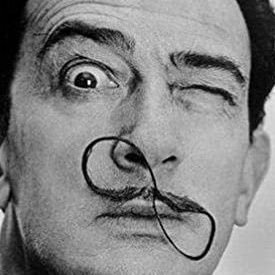ALL THE LIES YOUR TEACHER TOLD YOU ABOUT THE HOLOCAUST.
The Spaces focused on examining historical narratives related to the Holocaust, with discussions centering around Holocaust denial and revisionism. Key participants included Germar Rudolph, who spoke about his extensive research into Holocaust evidence and narratives, claiming major discrepancies between mainstream historical accounts and his findings, which have led to legal and social repercussions for him. Other participants shared their views on the impact of this historical event on current socio-political dynamics, including Jewish-Palestinian relations and World War II consequences. The conversation touched on a variety of controversial topics, highlighting differing perspectives on the historical and present-day significance of the Holocaust.
Recording Summary
Introduction
The conversation began with logistics pertaining to the Twitter Space, such as sharing the event and specific discussions about Twitter's demotion practices. The speakers then transitioned to the subject of the Holocaust, expressing skepticism about widely accepted narratives and discussing the shadowbanning they experience for talking about contentious topics.
Key Discussion Points
The Holocaust Narrative
Participants, particularly Speaker 2, introduced a poll suggesting skepticism about the Holocaust death toll and called for a revisitation of historical narratives related to the Holocaust and World War II. They emphasized reviewing these topics with an open mind, claiming to provide evidence from primary sources to challenge the mainstream history.
Scientific and Forensic Examination
Germar Rudolph, a key speaker, discussed his work, which involves forensic research challenging the chemical evidence of gas chambers at concentration camps. Rudolph talked about his long-term dedication to gathering and analyzing archival data, leading to his publication of extensive volumes under the 'Holocaust Handbooks' series. He highlighted how some scientific examinations do not align with the historical narrative of mass extermination using gas chambers.
Legal and Social Consequences
The conversation covered the legal and social repercussions faced by researchers challenging the Holocaust narrative. Germar Rudolph shared personal experiences of persecution and legal battles, outlining how his work led to significant legal challenges, including imprisonment in Germany and deportation from the United States.
Comparison of Historical Narratives
Speakers discussed the broader implications of Holocaust narratives by comparing historical narratives across regions and events, noting discrepancies in reported numbers and methods. They mentioned different countries and Jewish organizations’ roles in influencing Holocaust narratives for political and financial reasons.
Historical and Political Context
Discussions intertwined historical analysis with current events, such as current geopolitical tensions in the Middle East. The speakers frequently connected past injustices (real or perceived) to current events, particularly focusing on Jewish communities' influence in Western politics and culture.
Personal Accounts and Testimonials
Jew for Peace, a speaker shared a personal account of growing up in a Jewish community, identifying the intense indoctrination related to Holocaust narratives, and its effect on personal and cultural identity. They stressed the personal challenges and social isolation faced from taking a counter-narrative stance within their community.
Conclusion
The discussion also explored systemic suppression of dissenting voices regarding Holocaust narratives, emphasizing the importance of independent research and open discussion. The speakers concluded with calls to action for further exploration of historical truths and the importance of platforms that support free speech.
Final Remarks
The session ended with an open floor for comments and reflections, emphasizing the necessity of continued dialogue on sensitive historical subjects and maintaining platforms for expressing dissenting opinions. Participants were encouraged to continue engaging with alternate historical accounts and support those who work to challenge established narratives.
